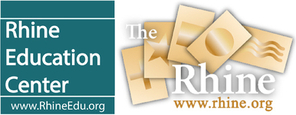Syllabus: Psi in Christianity
Course Description
Christianity is the world’s largest religion. Approximately one third of the global population identifies as Christian, and it had an influential role in the development of parapsychology. Yet many have the impression that Christianity and parapsychology are incompatible and that all psychic phenomena are demonic deceptions. Even many Christians have the impression that “it’s always demons.” However, the scope of Christian thought is actually broader, and historic Christian thinkers have been open to psi phenomenon.
This course surveys the scope of Christian thought on parapsychological topics including extra-sensory perception (ESP), psychokinesis (PK), the survival of bodily death, and Church-sponsored field investigations of paranormal phenomena like apparitions, miracles, and spirit possession.
Course Outline
-
Presenting the Paranormal to the Public
-
Introduction
- The Paranormal and the Supernatural
- The Basics of Parapsychology
- The Basics of Christianity
- History of Christianity and Parapsychology
- Conceptual Issues
-
Extra-Sensory Perception - ESP
- Precognition
- Telepathy
- Clairvoyance
- Dowsing
-
PK & Survival
- PK & Christianity
- Miracles and PK
- Macro-PK (e.g., Levitation)
- Micro-PK (e.g., Water into Wine)
- Healing (Prayer, Distance, Laying on of Hands)
- Psychic Attack (e.g., Evil Eye, Curses)
- Survival & Christianity
- • Christian Views on the Afterlife
- Out of Body Experiences
- Death-Related Experiences (including Near-Death Experiences)
- Spirit Communication
- PK & Christianity
-
Field Investigations & Wrap up
- Field Investigations
- Miracles
- Apparitions
- Poltergeists
- Possession & Exorcism (demons, dybbuks)
- The Causation Question Returns: Who’s Psi?
- Summary
- Field Investigations
-
Course Materials
Suggested Readings:
There is no specific text for this class, however, students will be provided with short readings or videos which will help them to better understand content of the lectures.
Course Activities
- Students will be expected to view the class broadcasts or the recordings of the classes each week.
- Students will be expected to participate in weekly discussion forums and activities. Each student will be expected to provide an original posting each week and to respond to at least one other student in the discussion forums. Greater participation in this area will be considered during class evaluations.
- A Final Quiz will be required to pass the course
This will consist of multiple choice questions (scored automatically by the computer) and short answer/short essay questions (scored manually by the instructor). Total 60 points.
Evaluations and Grading
Students who are taking the course for a grade will be assessed based on thier participation and performance on the assigments.
Participation in the forums is a large component of the grading, and substantive postings are necessary to get full credit for each discussion topic.
The following activities will be considered to contribute to the courses as follows:
Discussions (Total 40%): 10 points for each of the 4 weeks including responses to other people's posts
Final Quiz (60%)

